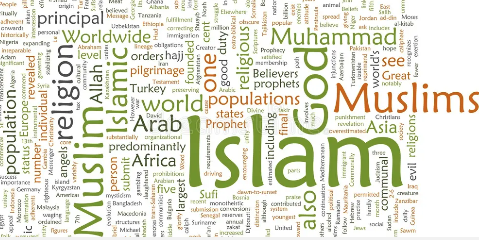Islamic Finance and Economy – Ethical Alternatives in a Troubled World

Introduction
As global economic systems face growing instability—from debt crises to widening inequality—many are turning to ethical alternatives. Islamic finance is gaining global interest as a stable, values-based model rooted in transparency, fairness, and social responsibility.
What Is Islamic Finance?
Islamic finance refers to financial activities guided by Islamic law (Shariah). It’s not just for Muslims—its principles of fairness, shared risk, and ethical investment appeal to a broad audience. Key foundations include:
-
Prohibition of Riba (Interest): Money should not generate profit without real economic activity.
“Allah has permitted trade and forbidden usury.” (Qur’an, Al-Baqarah 2:275 – Yusuf Ali) -
Risk-sharing: All parties should share both profits and potential losses.
-
Asset-backed transactions: Finance must be tied to real goods or services.
-
Moral investments: Businesses involving alcohol, gambling, weapons, or exploitation are excluded.
Islamic vs. Conventional Finance
Islamic finance differs fundamentally from traditional systems:
Islamic Finance
-
No interest (Riba)
-
Shared risk and reward
-
Transactions must involve tangible assets
-
Strong ethical filters
-
Seeks social justice and fairness
Conventional Finance
-
Interest is a core mechanism
-
Risk often shifted to weaker parties
-
Many speculative or debt-based deals
-
Minimal ethical restrictions
-
Focused on profit maximization
Key Financial Tools in Islam
-
Murabaha: Cost-plus sales contract (e.g., home buying)
-
Mudarabah: Profit-sharing partnership
-
Ijara: Leasing or rental agreements
-
Sukuk: Islamic bonds backed by physical assets
-
Takaful: Cooperative Islamic insurance based on mutual aid
Promoting Social Justice
Islamic economics goes beyond profits:
-
Zakat (Almsgiving): Redistributes wealth and supports the poor
-
Waqf (Endowment): Funds schools, hospitals, and public welfare
-
Fair trade and pricing: Islam prohibits hoarding, fraud, and monopoly
The Prophet Muhammad ﷺ said:
“The honest merchant will be with the Prophets, the truthful, and the martyrs.” (Tirmidhi)
Common Misconceptions
-
“Islamic finance is the same as conventional, just with Arabic terms.”
False. It’s built on ethics and shared responsibility. -
“It’s only for Muslims.”
Incorrect. Non-Muslims benefit from Islamic funds, sukuk, and mortgage alternatives globally.
Islamic Finance Around the World
-
UK: First non-Muslim country to issue Islamic bonds
-
Malaysia: Leader in Islamic banking and regulation
-
Gulf States: Major Islamic financial hubs
-
USA & Europe: Growing Islamic investment and fintech services
Conclusion
Islamic finance provides an ethical, inclusive, and stable alternative to conventional capitalism. It’s not only compatible with modern economics—it offers timely solutions in an age of financial uncertainty.
Sources
-
Qur’an (Yusuf Ali Translation)
-
AAOIFI Guidelines
-
Islamic Development Bank Reports
-
Global Islamic Finance Report
-
Dr. Taqi Usmani – An Introduction to Islamic Finance
-
IMF studies on Islamic banking resilience